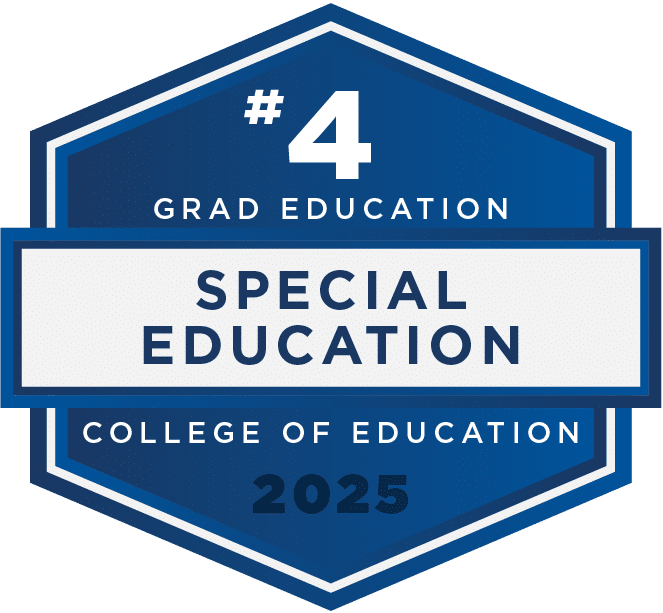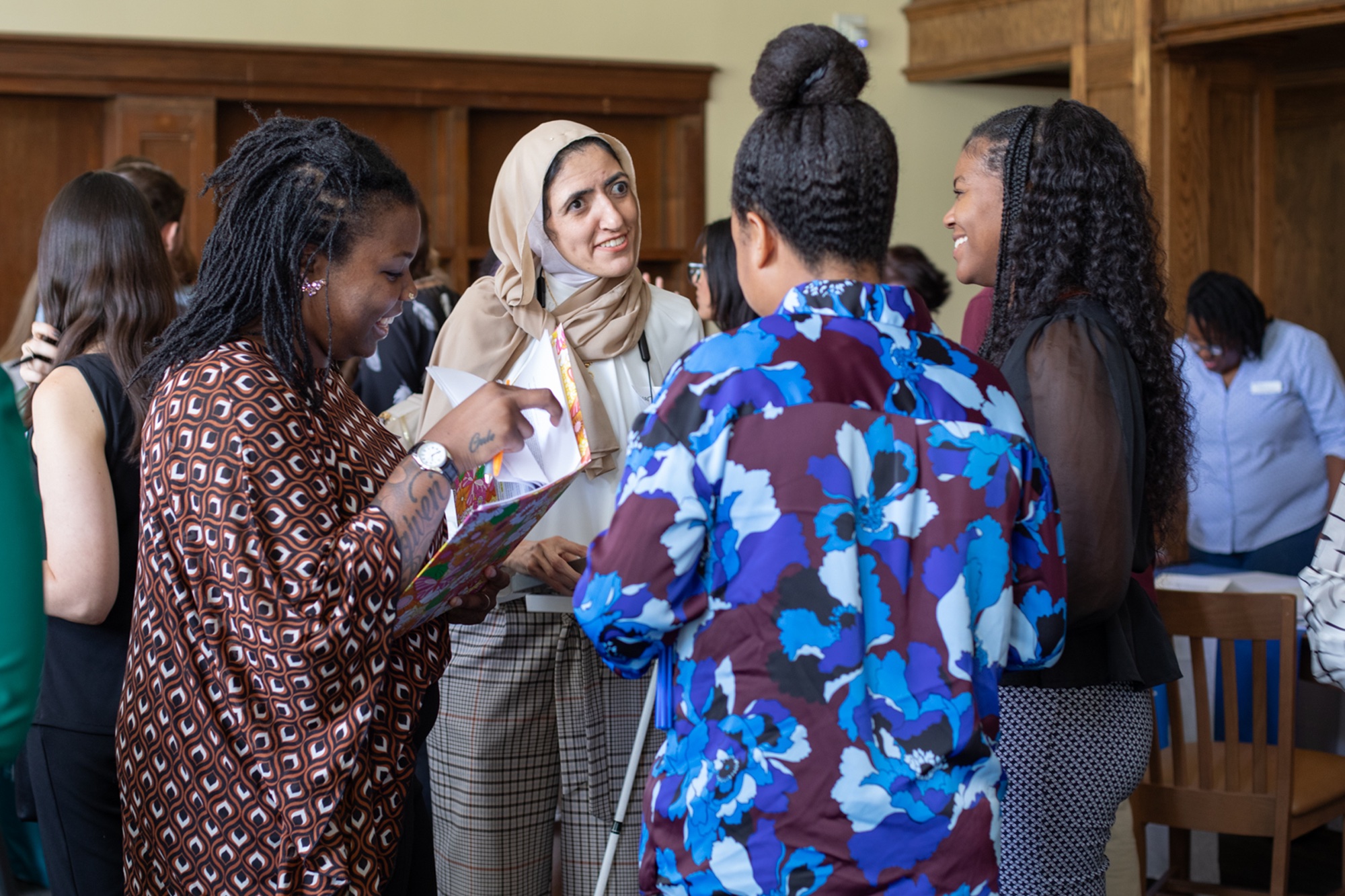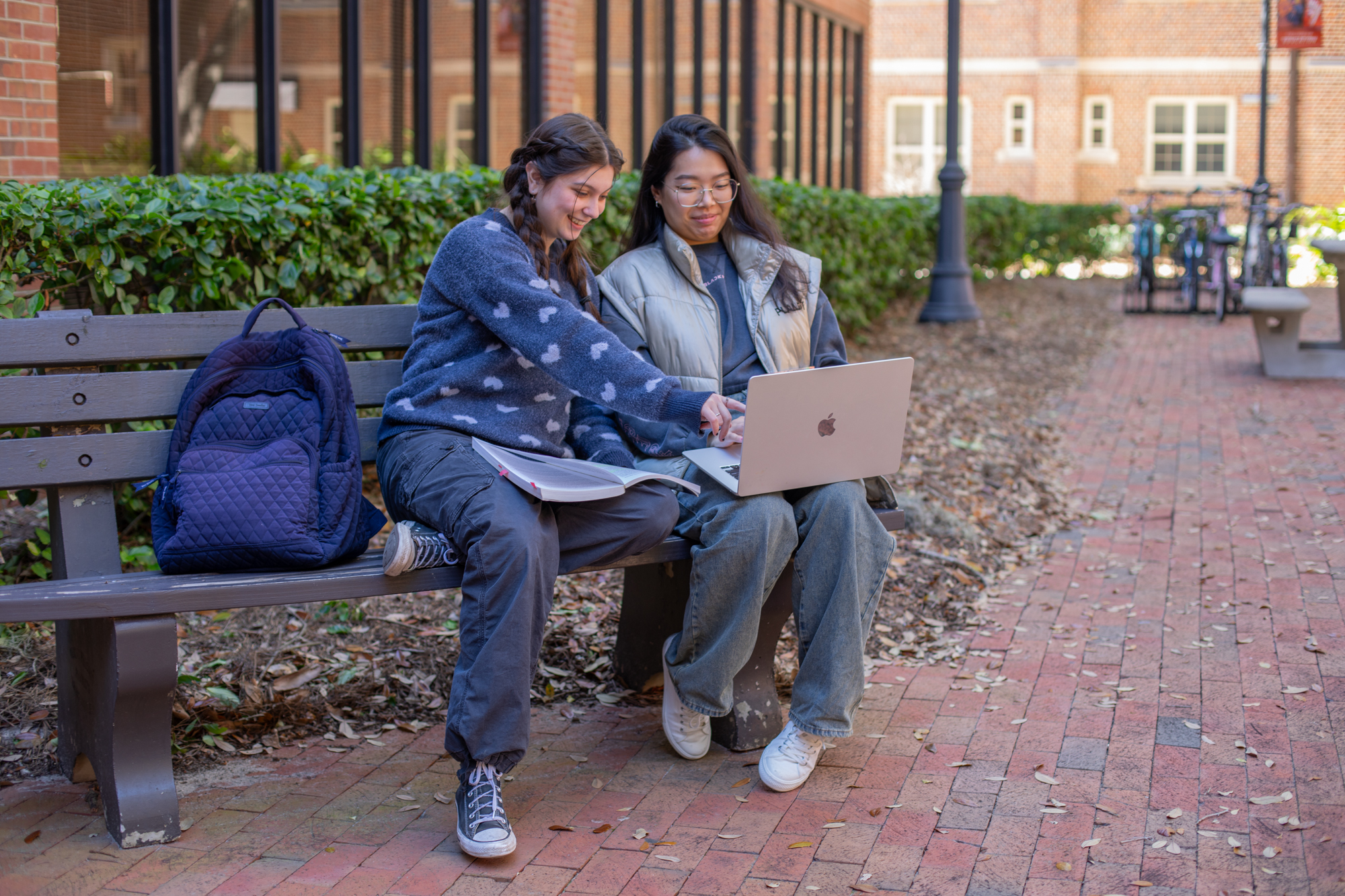

Program Offerings
We offer a campus-based Ph.D. degree program and online M.Ed., Ed.S. and Ed.D. special education degree programs. Graduate certificate programs in dyslexia assessment and intervention, early childhood education, and disabilities and society are also available.

On-Campus Ph.D.
Doctoral Program
The on-campus Ph.D. program nurtures scholars for impactful careers in research-intensive positions in academia and special education agencies.

Online Ed.D.
Doctorate Program
The online Ed.D. program prepares graduates for career advancement as service providers, school leaders, professional development facilitators and advocates for individuals with disabilities.

Online M.Ed.
Master’s Program
The online Ed.D. program prepares graduates for career advancement as service providers, school leaders, professional development facilitators and advocates for individuals with disabilities.

Online Ed.S.
Specialist Program
The UF Ed.S. special education degree program is entirely online and is designed for current educators or anyone who has already completed a master’s degree program in an appropriate area.

DySlexia
Graduate Certificate
The fully online dyslexia certificate program prepares practicing educational professionals and others interested in becoming effective interventionists for students with dyslexia.

DISABILITIES IN SOCIETY
Graduate Certificate
The completely online certificate allows learners to enhance their knowledge of disabilities. Classes focus on deepening knowledge for application in professional practice, academia and more.

DISABILITIES IN SOCIETY
Undergraduate Minor
Designed for UF undergraduate students, disabilities in society is the minor you didn’t know you needed. Coursework provides real-world training to positively impact the lives of individuals with special needs across fields and disciplines.

